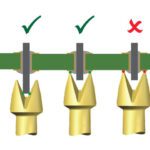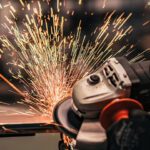Five Keys to Selecting the Right Contacts Manufacturer for Smart Devices
The growing benefits and functionality offered by connected or intelligent devices has led to the proliferation of smart connectivity in all sectors. Precision contacts are key to design success.

Keys for Selecting an Electrical Contacts Manufacturer for Smart Devices
Smart connectivity has become an important function in a vast range of devices. The interconnects that support this connectivity have also evolved to become more versatile and powerful. Collaboration with an electrical contact manufacturer should measure all the issues at stake to create the most effective contact design. Suppliers of standard or customized contacts should deliver the following:
- Technical expertise. Clear comprehension of electrical properties, plugging, and unplugging.
- Deep understanding of the raw materials. Copper alloy and other alloys, aluminum, beryllium, brass, bronze, stainless steel, , as well as experience processing them and understanding their differences. The supplier should be able to guarantee the slots have adequate hardness and elasticity. Moreover, production must be resistant to any hazardous environmental condition that could impair the connectors’ functionality.
- Plating. Understand the interactions of each coating (gold, silver, tin, etc.), as this element will play a crucial part in the contacts’ performance and connectivity transfer.
- Performance. Be able to machine parts that comply precisely with market standards. Contacts must have tight tolerances under all circumstances, including in harsh environments.
- The supplier should be able to handle different volumes, including prototyping.
- Capabilities to customize production to the customer’s specifications.
- Cutting-edge technology. Ensure high-precision with high-speed transfer machines, Swiss-screw high-speed machines, multi-axis CNC machines, and others. High-tech machinery provides a balance between product flow and complex operations.
- Ability to meet deadlines. The ability to consistently deliver on time is essential.

Selecting an Electrical Contacts Manufacturer for Smart Devices
To meet smart connectivity requirements, however, an electrical contact manufacturer should go beyond meeting the basic criteria and provide these additional elements.
1. Engineering support
The right technical guidance makes all the difference. Having a contacts producer with a technical support teams of engineers who can provide reengineering, design for manufacturing, and reviewing and adapting technical drawings is essential.
2. Co-design experience
The quality of the part greatly impacts the final connector product. The electrical contacts partner should participate in every aspect of the technical design process in order to gain a clear vision of the connector’s requirements and lead prototype production.
3. Solid knowledge of connectors and electrical contacts
The best contacts collaborators have a deep technical understanding of PCB and connector designs, whether they be RF connectors (coax, twinax, triax, quadrax, octoax), fiber optics, circular, rectangular, and triangular, ARINC 400 & 600, D-Sub, micro-D, or nano-D. They must be must be capable of processing all types of parts (e.g., pin and socket, bent, multi angles, extreme small size). This expertise can be reflected in the mastery of socket production, including slots repositioning.
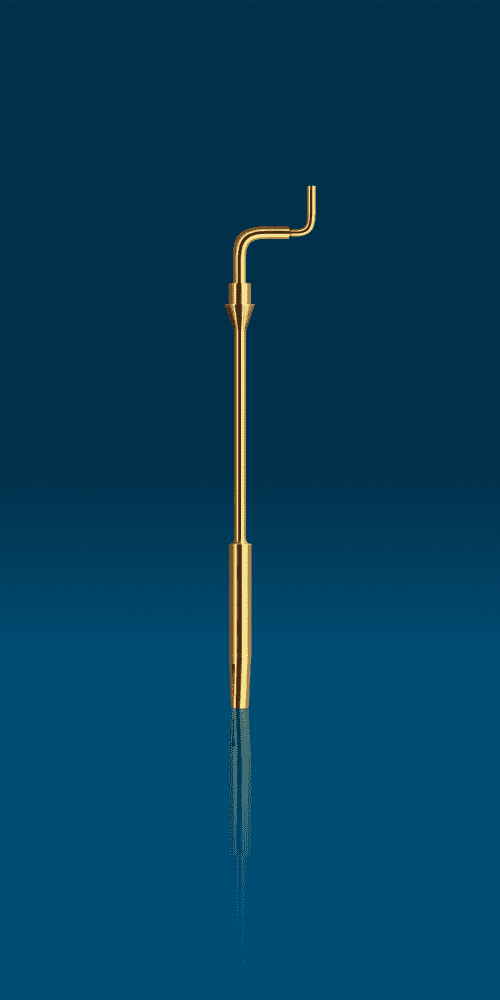
To address smart connectivity specifications, a contact supplier must also be an expert in dealing with long and thin contacts with small diameters, along with being able to co-design and manufacture miniature contacts as devices get smaller. Knowledge of both connectors and contacts is necessary for perfect positioning and smooth assembly, taking into consideration mating and unmating cycles in addition to power transmission or signal transmission.
4. Versatility, innovation, and solutions
The contact production procedure must be adaptable to different technologies. For instance, screw-machining, cutting clips, or cold heading may best serve a particular design. This versatility is important, as suppliers that can treat all types of pieces can provide a more custom solution.
The contacts provider must also anticipate the customer’s future needs. For instance, connectors sometimes can be damaged or become faulty. Replacement or repair can be time-consuming and expensive. Alternative solutions, such as innovative contacts that can be repaired or changed without involving other parts of the electronic system, save time and money.
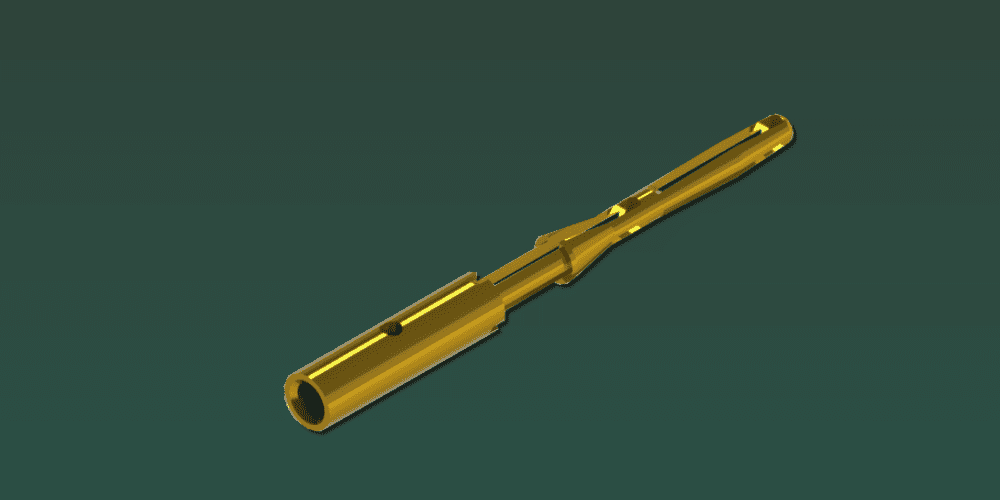
5. An understanding of smart connectivity needs
Electronic component suppliers must consider how their products work as part of a larger entity. This applies to electrical contacts and how the connectors they go in play a significant role in the bandwidth transmission on connected devices. Contacts manufacturers, therefore, must understand crimp and termination challenges.
With this perspective, while conducting screw machine parts operations, a producer must be able to commit to vetting and ensuring that the parts are compatible with underlying electronic systems in the final device. This can only be achieved with the involvement of engineers from the contact production plants.
6. Security at all costs: stringent quality procedure
Elements of the IoT can be vulnerable to hacking, which is especially dangerous for vital information transmitted through medical, mil/aero, and civil aviation applications. Stringent quality controls, such as forces control, slots, and minimum weight and length inspections, must be in place at every step of the process. In addition to human verification, automated controls (i.e., camera inspection with two cameras in cascade, especially for checking symmetrical parts) help support the target of zero faults. These checks must cover not only the manufactured parts but also their integration into an external support, for example, testing with customer cables. Avoid suppliers who outsource operations, as they cannot guarantee a high level of security and quality controls in their partners’ workshop. Master the production chain and keep control on all components’ traceability.
7. High performance and costs-efficiency
To reduce the overall costs of production without compromising high quality and performance, one solution is to reduce the amount of gold used. Selective plating maintains high quality without exceeding budgets.
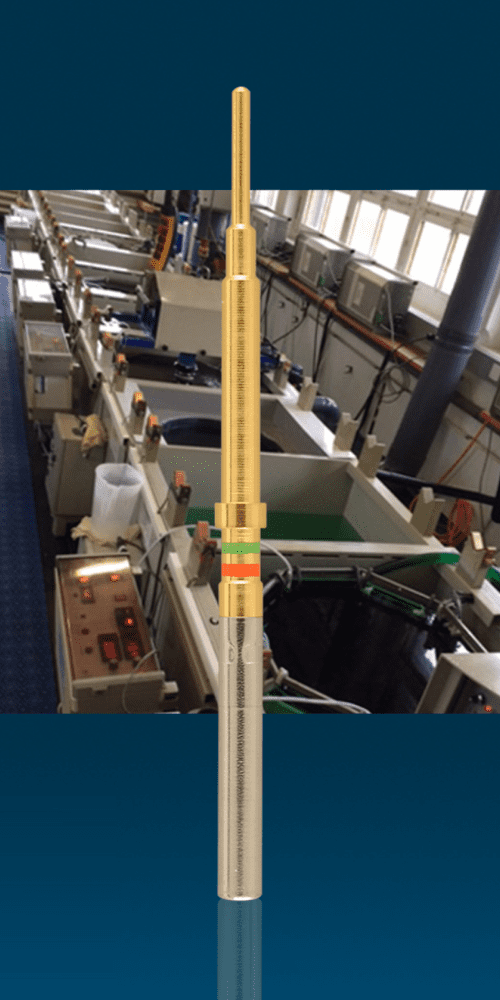
8. All-in-one: vertical production plus all ancillary essential services
For better results, connector manufacturers may use contact producers that can apply vertical production, although very few exist. These suppliers can execute all production steps, from co-designing to final production. This includes conducting all activities such as retrofitting, screw-machining, secondary-operations machining even on complex operations (notably on extremely small sizes), bending, partial annealing, plating, assembly, color coding, surface treatment, 100% forces control, and more.
Bringing together in one place all the trades involved in bar turning is essential for optimum production. In addition to engineers, the company should have technicians with solid knowledge beyond machining, i.e., reparameterization of machines to upgrade a system for better performance.
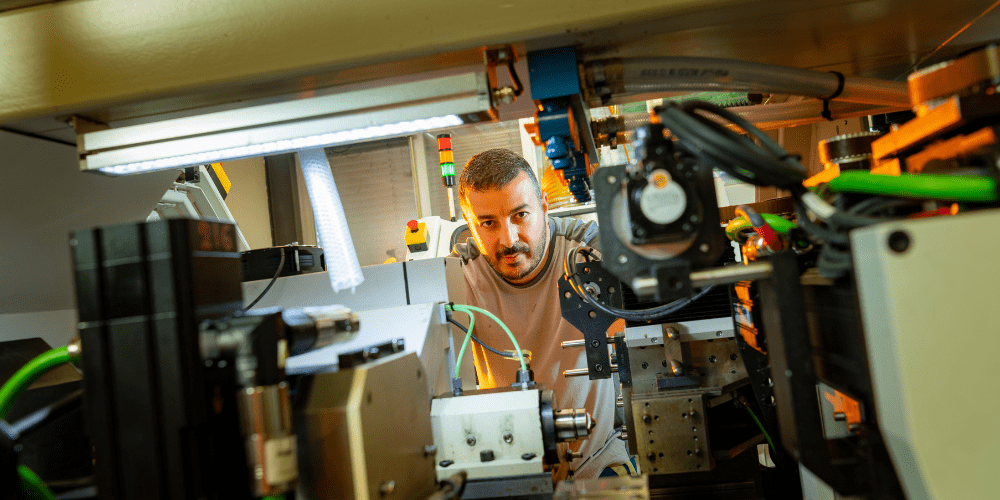
A full-service contact manufacturer offers OEMs and connector suppliers a great advantage, as centralizing design and production eliminates the need to manage different subcomponent suppliers. In addition, an all-in-one solution saves time and money.
When it comes to selecting an electrical contacts manufacturer, look for a company that provides more than screw-machined parts. Choose one that can anticipate your future needs and challenges to provide you with more effective solutions.
To learn more, visit Lemco.
Like this article? Check out our other Manufacturing, How to Specify articles, our Datacom Market Page, and our 2023 Article Archive.
Subscribe to our weekly e-newsletters, follow us on LinkedIn, Twitter, and Facebook, and check out our eBook archives for more applicable, expert-informed connectivity content.
- Five Keys to Selecting the Right Contacts Manufacturer for Smart Devices - September 26, 2023
- How to Choose a Screw-Machined Parts Supplier for Mil/Aero Product Development - March 16, 2021
